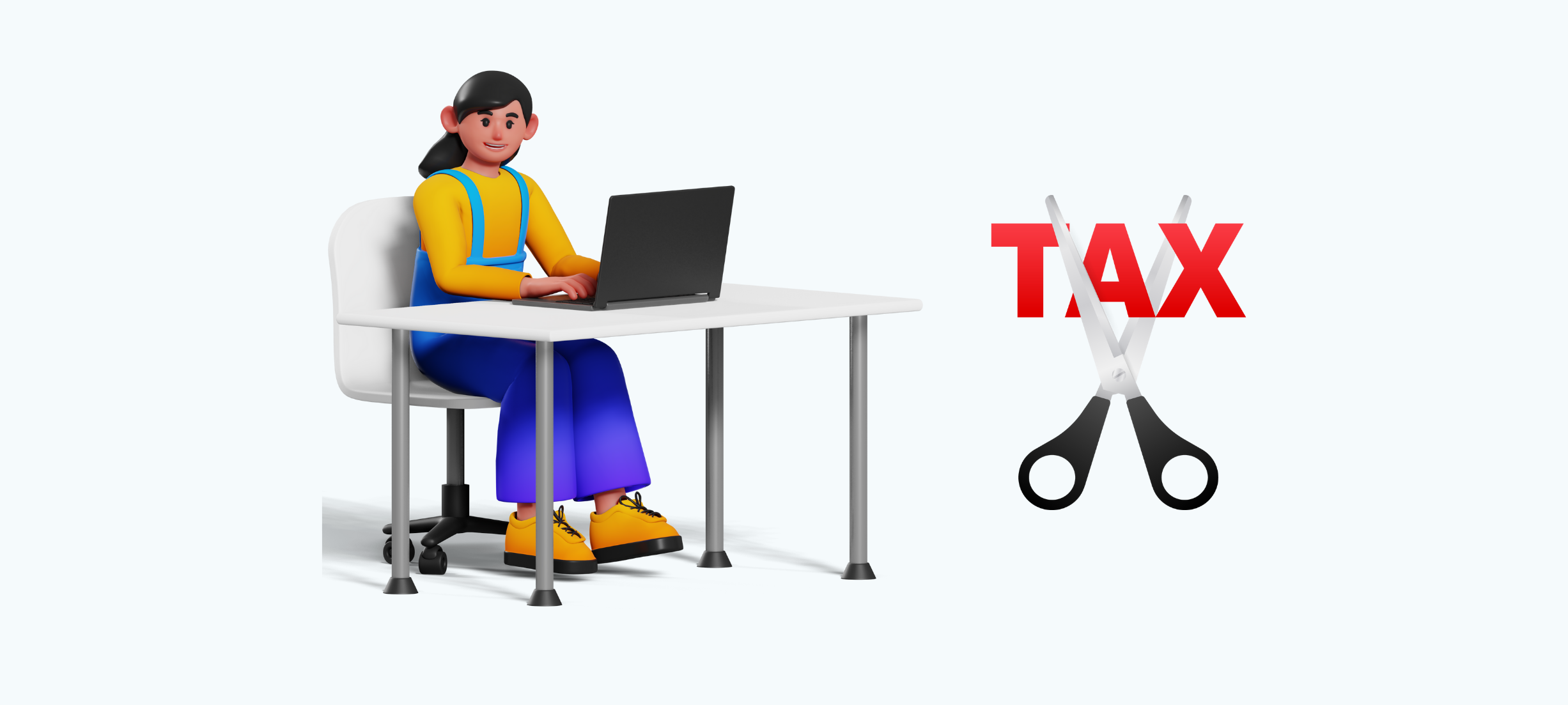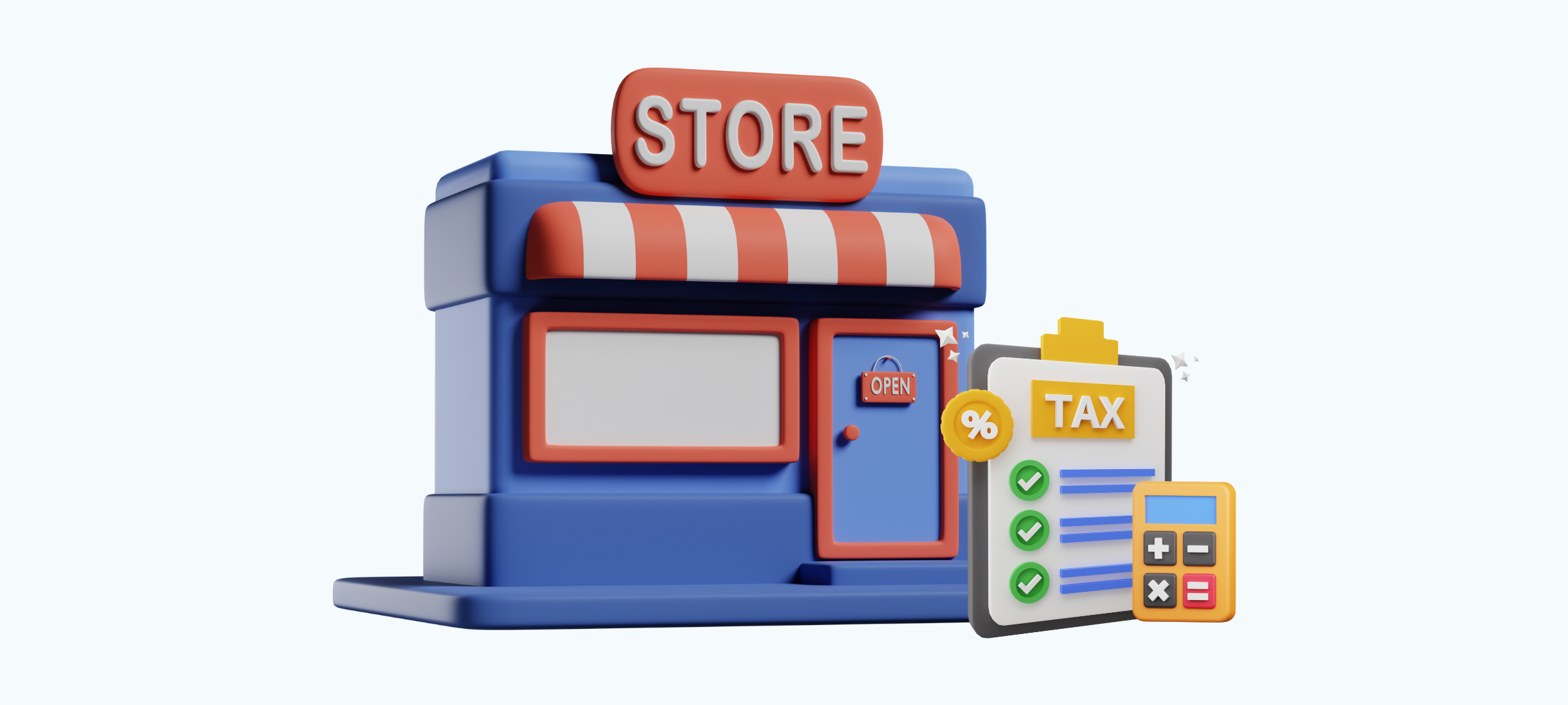Tax season. These words can make us nervous, even if we're good at keeping things in order. You send in your tax papers, hoping to get some money back, but instead, you find out you have to pay. You're not alone – many U.S. taxpayers wonder, "why do I owe taxes?" It's a common question. Usually, it happens because of changes in their tax situation. Let's start learning together and make tax season less scary!
Why you might owe taxes this year?
Ever filed your taxes and ended up owing money? It's a frustrating experience, but there are some common reasons it might happen. Let's break it down:
1. The withholding balancing act: Your paycheck might not be withholding the perfect amount of taxes. This can happen for a few reasons. Think of it like a balancing act:
- Outdated W-4: This form tells your employer how much tax to withhold. If it's not updated to reflect your current income or life changes, it might not be withholding enough throughout the year.
- Income fluctuations: Did you get a raise, take on a side hustle, or experience unemployment? These changes in income can throw off the withholding calculations based on your W-4.
2. Beyond the Paycheck: Some income sources don't have automatic tax withholding:
- Freelance/side hustles: The income from these activities might not have taxes automatically withheld, leaving you with a tax bill come filing time.
3. Self-employment surprise: As a self-employed individual, you're responsible for both income tax and Social Security/Medicare taxes (usually covered by employers). Since there's no employer withholding, you need to make estimated quarterly tax payments to avoid owing a large sum later.
4. Life's curveballs: Major life changes can impact your taxes:
- Marriage/Divorce: Your filing status can change, affecting your tax bracket and deductions.
- New Dependents: Having children or caring for an elderly parent can make you eligible for tax credits, potentially impacting your tax liability.
Understanding these reasons behind owing taxes can help you avoid a similar situation next year. Here are some steps to consider:
- Review and update your W-4: Make sure your W-4 form reflects your current income and life situation.
- Estimated tax payments: If you have income sources without withholding (like freelance work), consider making estimated quarterly tax payments to avoid a large tax bill at filing time.
- Seek professional help: If your tax situation is complex, consider consulting a tax professional for guidance.
What is tax withholding?
Tax withholding is a system where your employer sets aside a portion of your income for income taxes throughout the year. This way, instead of owing a large sum of money when you file your tax return, you've essentially been pre-paying your taxes a little bit with each paycheck.
Here's a breakdown of how it works:
- Why Withholding? The government needs a steady stream of tax revenue, and waiting for everyone to file their taxes wouldn't be efficient. Withholding ensures a consistent flow of tax income throughout the year.
- Employer as middleman: Your employer acts as the go-between. They estimate your tax liability based on the information you provide on a W-4 form (basically a tax questionnaire about your income and dependents).
- A piece of the pie gets set aside: With each paycheck, your employer withholds a portion based on your W-4 selections. This withheld amount gets sent directly to the government on your behalf.
- The goal: Accuracy and avoiding surprises: Ideally, by the time you file your actual tax return, the taxes withheld throughout the year should be close to what you actually owe. This avoids a big tax bill surprise at filing time.
Think of it like this: Withholding is like a pay-as-you-go system for taxes. It spreads out your tax burden throughout the year, making it potentially less painful than a lump sum come tax season.
Minimizing your tax bite in 2024
Even if you've jumped to a higher tax bracket, there are still ways to potentially reduce your tax liability. Here are a few strategies to consider:
- Maximize deductions: Explore tax-deductible contributions to retirement accounts like IRAs or 401(k)s. These contributions can significantly lower your taxable income.
- Review Itemized Deductions: If your itemized deductions (e.g., medical expenses, charitable contributions) exceed the standard deduction, you can potentially reduce your taxable income.
- Utilize Tax Credits: Certain tax credits, like the Earned Income Tax Credit (EITC), can directly reduce the amount of tax you owe.
Did income growth push you into a higher bracket?
The Internal Revenue Service (IRS) establishes tax brackets for each filing status (single, married filing jointly, etc.). These brackets are adjusted annually to account for tax inflation, preventing excessive taxation due to rising costs. However, if your income growth outpaces inflation, you could still find yourself entering a higher tax bracket.
Here's a breakdown of the key elements to consider:
- Taxable income: This refers to your total income minus allowable deductions and exemptions.
- Tax rates: Each tax bracket has a designated tax rate. As your taxable income rises and enters a new bracket, the tax rate on the incremental income within that bracket increases. This means you're not taxed at the higher rate on your entire income, but only on the portion that falls within the new bracket.
- Marginal tax rate: This refers to the tax rate applied to your last dollar of taxable income.
For example, let's say the 22% tax bracket applies to taxable income between $40,000 and $85,000. If your income in 2022 was $80,000, you would pay 22% only on the portion of your income exceeding $40,000 (i.e., $40,000). However, if your income in 2023 increased to $87,000, you would now be taxed at the 24% rate on the income exceeding $85,000.
Inflation's tax twist: Potential for bigger refunds in 2024
Rising prices can strain your budget, but there's a potential upside for some taxpayers in 2024. The annual adjustments the IRS makes to tax brackets and the standard deduction can lead to bigger tax refunds.
Here's how inflation adjustments might work in your favor:
- Keeping you in the right bracket: The IRS adjusts tax brackets each year to account for inflation. This ensures you're not unfairly bumped into a higher tax bracket just because your income reflects rising costs, not necessarily more buying power. In 2023, these adjustments were significant, with tax brackets increasing by a noteworthy 7.1%. If your income in 2023 stayed relatively flat (meaning it didn't rise significantly with inflation), you could find yourself in a lower tax bracket for 2024.
- Boosting your standard deduction: The standard deduction, a set dollar amount that reduces your taxable income, also gets adjusted for inflation. So, even if your income increased slightly, the larger standard deduction could still lower your taxable income and potentially lead to a bigger tax refund.
The bottom line: More Money Back? Thanks to these adjustments, some taxpayers who haven't seen a substantial income increase might owe less in taxes for 2023. This could translate to a larger tax refund when they file their returns in 2024.
Important reminders
- Not everyone benefits: This situation doesn't apply universally. If your income kept pace with inflation or even grew faster, you might not see a significant change in your tax bracket or refund amount.
- Consult a tax pro: For personalized advice based on your specific circumstances, it's always best to consult with a tax professional.
Avoiding penalties and interest charges in 2024
Tax season can be stressful, and nobody wants the added burden of penalties and interest charges on top of their tax bill. Here are some key strategies to help you avoid these unwelcome fees in 2024:
Understanding penalties and interest
- Penalties: The IRS charges penalties for various reasons, including filing your tax return late, failing to pay your tax bill on time, or underpayment of estimated taxes.
- Interest: Interest accrues on unpaid taxes and penalties from the due date until they're paid in full.
Strategies for avoiding penalties and interest
1. File your return on time (even if you owe)
- The deadline to file your federal tax return is typically April 15th (subject to change). Even if you can't pay your entire tax bill by then, filing on time avoids a late filing penalty (usually 5% per month, capped at 25% of the tax owed).
- Consider filing an extension if you need more time to file, but remember, an extension gives you more time to file, not to pay.
2. Pay as you go with estimated taxes
- If you have income that doesn't have taxes withheld at the source (like freelance work or side hustles), you're responsible for paying estimated taxes quarterly. This helps avoid a penalty for underpayment of estimated taxes.
3. Review and update your W-4
- Your W-4 form tells your employer how much tax to withhold from your paycheck. If your life circumstances change (e.g., marriage, child dependents), review and update your W-4 to ensure you're withholding the right amount throughout the year. This minimizes the chances of owing a large sum at tax time.
4. Stay organized
- Keep all your tax documents throughout the year. This makes filing easier and ensures you have the necessary documentation to claim deductions and credits you're eligible for.
Resources for further tax help
Filing taxes can be a complex process, and sometimes you need a little extra guidance. Here's a breakdown of free resources to navigate tax season in 2024:
Free resources
- IRS free file: The IRS offers a free filing program for individuals and families whose Adjusted Gross Income (AGI) falls below a certain threshold (usually around $73,000). This program connects you with various free tax preparation software options.
- Volunteer income tax assistance (VITA): This IRS program offers free tax preparation services to low-to-moderate income earners, people with disabilities, and those with limited English proficiency.
- Tax counseling for the elderly (TCE): This program provides free tax help to seniors aged 60 and older, with a focus on pension and retirement-related tax issues. To find a TCE location near you, visit the IRS website: (https://www.irs.gov/credits-deductions/individuals/credit-for-the-elderly-or-the-disabled)
- State and local resources: Many states and municipalities offer free tax prep assistance programs. Check with your state's Department of Revenue or your local library for details.
How BookkeeperLive can help?
BookkeeperLive offers bookkeeping and tax preparation services designed to simplify your financial life. Here's how we can help you with your 2024 taxes:
- Organized records: Our team can help you gather and organize your tax documents throughout the year, saving you time and stress come filing season.
- Accuracy and efficiency: We utilize advanced software and experienced professionals to ensure your tax return is accurate and filed on time.
- Maximizing deductions: We'll work with you to identify all eligible deductions and credits to minimize your tax liability.
- Peace of mind: With BookkeeperLive handling your taxes, you can focus on what matters most, knowing your tax return is in good hands.
Ready to take control of your taxes?
Whether you choose to utilize free resources, paid software, or a professional service like BookkeeperLive, there are options available to help you navigate tax season in 2024. Contact BookkeeperLive today for a free trial and learn how we can streamline your tax filing process and ensure you get the best possible outcome.
FAQs
1. My paycheck didn't withhold enough tax. Why do I owe now?
There are a few reasons why your employer might not have withheld enough tax throughout the year. Outdated W-4 forms, income fluctuations, or income sources without automatic withholding (like freelance work) can all lead to a situation where you owe taxes at filing time.
2. I got married/divorced in 2023. Did that affect my tax situation?
Absolutely! Changes in filing status (like marriage, divorce) can impact your tax bracket and the deductions you qualify for. This can lead to owing more or less in taxes.
3. I had a baby in 2023. Did I miss out on claiming any tax credits?
New dependents can qualify you for tax credits like the Child Tax Credit. If you didn't claim them on your 2023 return, you might owe more depending on the credit amount.
4. What if I can't afford to pay my tax bill in full?
The IRS offers payment plans for those who owe taxes. You can explore options on the IRS website or by calling them directly.





